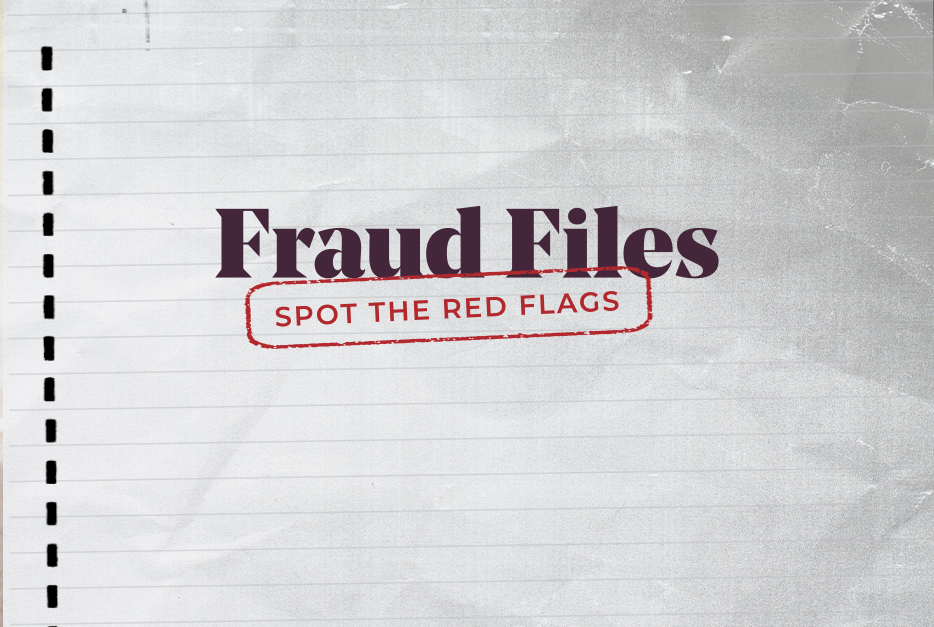Fraud Files: When a stranger calls...
What happened
Mira was enjoying her afternoon tea when she received a phone call from a man who sounded extremely upset. He told Mira that her son ran a red light and smashed into his car when he was on his way home from picking up his baby from daycare. He then told her that, sadly, his baby did not survive the accident. Stunned at what she was hearing, Mira asked the man on the phone to slow down and repeat what he’d just told her. He told her the story again and added that he was suing her son for the loss of his baby. He went on to say that her son told him that Mira would pay to avoid a long legal battle in court. Mira wanted to help her son, so she asked the man what she needed to do.He told Mira that if she wanted to avoid him suing her son, she would have to send him a wire transfer for $200,000 by the end of the week. He also advised her to tell her bank that she was sending the money to an investment firm in Alberta so they wouldn’t ask questions and that, under no circumstances, should she involve others or tell the truth to anyone about what the money was really for. Scared, Mira agreed to send the money and immediately.
When Mira contacted SCU to request the wire transfer, SCU asked for documentation for the investment firm so they could verify the transfer. Since she was unable to provide any, SCU advised her the wire transfer request could not be completed. The next day, the man called Mira again and was angry she hadn’t been able to transfer the funds to him. Mira begged him to let her try again, so he eventually came up with a new plan. This time, he told Mira to wait outside her building at 10 a.m. the next morning. He said there would be someone waiting to follow her to the branch where she was to withdraw $10,500 from her account. He told her not to say anything to the person following her, but to walk back to her building with the cash and hand it to him before going inside.
Mira was understandably frightened, but she did as she was told and waited outside her building until she saw a man with a baseball cap sitting low on his forehead. He nodded at her discreetly, then followed her to the branch where he waited for her to withdraw the money from her account. Not wanting to fail to get the money again, she told the teller she was having some home renovations done and wanted to pay the contractor in cash. When the withdrawal was complete, Mira quickly left the branch with the cash in hand. The man in the baseball cap followed her back to her building where he quickly grabbed it from her and took off running before she could get a good look at him. Mira went into her apartment to call her son to make sure he was okay, and to let him know she’d paid the man from the accident so he wouldn’t sue him.
The scam
Spot the red flags:
- A random, and urgent, call asking for money: Scammers like to create a sense of urgency with the hope of catching their potential victim off-guard and making them act before they have time to think it through. The man who contacted Mira and asked for money made it seem like she had no choice if she wanted to help her son.
- Don’t tell anyone: It’s a popular tactic for scammers to tell people not to share what’s happening with anyone. They want to prevent potential victims from talking to anyone who might suggest they go to the police. And, in Mira’s case, they wanted to avoid her talking to her son, so she had no way to verify if what the man on the phone was telling her was true.
- If the first request doesn’t work, try again: Asking Mira first for $200,000, and then when that didn’t work, settling for $10,500 is something to question. Why did they want a large amount of money first, but then accept a much smaller amount when the initial request didn’t work?
What happens on our side
When Mira made the initial request for a large wire transfer but couldn’t produce any documentation, SCU would not agree to process the request. The wire transfer department kept an eye on Mira’s account, and when they noticed she’d come into the branch to make a withdrawal, they contacted the teller to ask about it. Her account was sent for review with SCU’s Deposit Compliance Department, who were able to confirm Mira lived in a senior’s home and would not need money for renovations. SCU then contacted the member, who confirmed she checked in with her family and was aware she’d been scammed.
SCU flagged Mira’s account to watch for any more fraudulent activity and let front line staff know she’d been the victim of a scam. Mira also agreed that SCU could call her son to discuss the situation and make sure that everyone was doing what they could to prevent this from happening again.
Key takeaway:
Scammers are known to look for residents in senior housing to conduct what is commonly known as the Grandparent’s Scam. They anticipate these residents will be isolated from family and friends, presumably making them an easier target for fraud. We encourage you to talk to family and friends who might be vulnerable to this type of scam. Remind them to reach out to a trusted source if they are approached by anyone asking for money, especially if they are told not to tell anyone or to lie about what the money is for.
Sometimes, we can spot and stop a fraud scam before a member loses money. Unfortunately, this is not always the case. Preventing fraud is an important responsibility we all share. SCU strongly recommends that members remain vigilant and learn to protect themselves from falling victim to fraud. Visit our Fraud Prevention Centre to learn more about fraud, how to spot it, and if in doubt, reach out to SCU for advice at 1.800.728.6440.
You can also check out the Canadian Anti-Fraud Centre for information on known scams.



